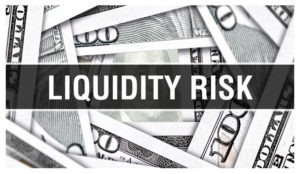
Can ETFs maintain liquidity during times of market turbulence, or should rules be changed to allow ETF providers to pay market makers directly in order to ensure stability? That’s the debate currently raging among market participants. At Bloomberg, Ksenia Galouchko reports on the problem and possible solutions:
Some see a potential cure in a practice that’s commonplace from Italy to the U.K. but banned in America: ETF providers paying market-makers directly. The argument goes that conflict-of-interest concerns are misplaced — and that traders under contract to keep transacting in passive instruments will do so come hell or high water.
While U.S. regulators are keeping mum on the issue, it’ll likely be a hot topic at industry conferences heading into year-end, said GTS’s Reggie Browne, who supports a “modernization” of ETF market-making rules.
“Particularly in times of stress and at the end of cycle, you never know what’s going to happen, and you want all participants to be active in the marketplace,’’ said the principal at the trading giant.
Increasingly fragile investor sentiment this summer is sparking ever-more extreme swings, with August registering a blinding Treasury rally, stock reversals rarely seen in this multi-decade bear run and a historic sell-off in some emerging-market bonds. ETFs are particularly vulnerable to sudden shifts in sentiment since they’re bought and sold throughout the day.
Paying market-makers directly would help ensure they remain committed to providing competitive quotes even if markets become roiled, some argue. Smaller products that are neglected by these traders under the current regime would stand to benefit the most, according to Louis Odette, a strategist at Citigroup Inc.
That’s because under current rules market-makers, who help to keep an ETF’s price in line with its underlying value, are compensated by exchanges according to trading volumes, leaving smaller funds vulnerable to being shunned when it becomes uneconomical to support them.
“If there’s market turmoil, the market-maker is more likely to step away if they don’t have a commercial obligation,” said Hector McNeil, co-founder of ETF platform HANetf in London and a 20-year industry veteran. “Market-making agreements create a very solid foundation and framework for issuers to demand a decent service level from the market-makers.”
Read more here.



